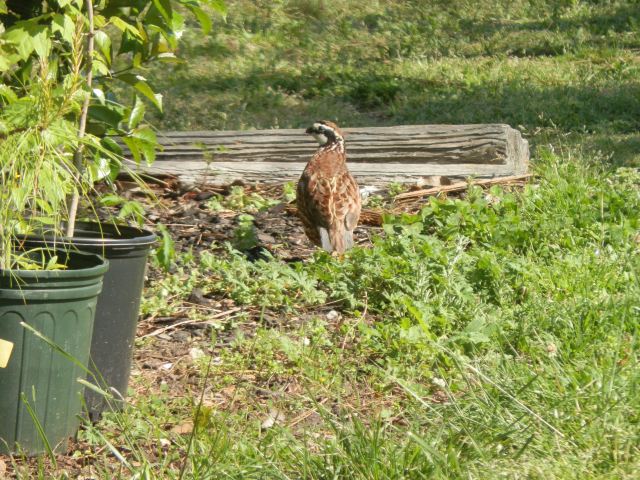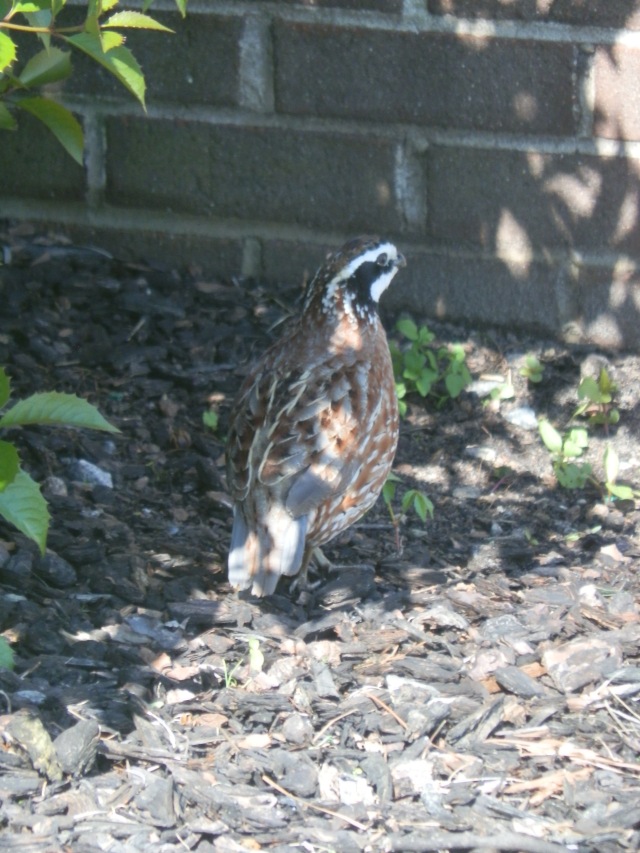I love the sound of bobwhites. I was working outside last spring in a brushy place and their call rang in my ears all day. I couldn’t resist calling back.
Quail usually continue the conversation. I’ve called some to within a few yards, closer than I’ve ever been able to call a turkey. It’s a shame there aren’t more bobwhites around. Food and cover appear more than sufficient.
However, when you look closer we don’t have adequate winter food or cover in the Elizabeth City area. Quail like thickets and need seed from wild grasses to sustain them through the cold weather when little is growing. In winter, much of our land is open and more or less barren.
Quail do better when fields are smaller and there is more fringe area between fields and open woods. Lack of cover and increasing predators paint a dismal picture for the quail.
Dove populations aren’t suffering the same way. They thrive in open areas. Doves fly better than quail and for longer distances. This means they can travel further for food. Our farming practices have benefited doves. They have hindered quail. Bobwhites require food, water and cover concentrated in much smaller areas. This makes them even more subject to predation.
Quail also eat insects, so pesticide use can cut down on a large potential feed source. Quail also nest on the ground, whereas doves usually roost in trees. While that doesn’t ensure safety, it increases it.
Quail lay up to 15 eggs per clutch and may lay three clutches per year. Incubation period is 23 days, and both males and females incubate the eggs. This all sounds promising for a healthy population, but entire broods can be wiped out more easily on the ground.
Quail have an annual turnover rate of about 80 percent, which means that eight out of every ten birds will die each year whether they are hunted or not. They try to protect themselves by traveling in what we call coveys. These small groups are arranged more or less in a circle. When danger strikes the birds scatter in all directions. It can be quite startling.
At school last year we hatched over 70 of these little chicken-like birds. Several students took them home and about a dozen escaped when a door was not closed in time. This covey has hung around close for a few weeks now. They occasionally have entered the shop in search of food. They are now old enough to call and I’ve entertained myself by whistling to them and watching them come toward me. Later in the fall they won’t answer or play the game.
I thought about trying to catch them, but I decided I didn’t want to stress them out. They fly into the pen shortly after we feed our other birds. Already a few have disappeared, likely casualties to local predators.
There may not be many wild quail to play with, but spring offers us an opportunity to hear that classic ‘bob bobwhite’ sound. It’s a treat for me. If there were a good supply of wild ones, I’d put a few on my plate once the season opened. They taste great! You could serve them in a chicken dish and nobody would notice.
Ted Manzer teaches agriculture at Northeastern High School.


